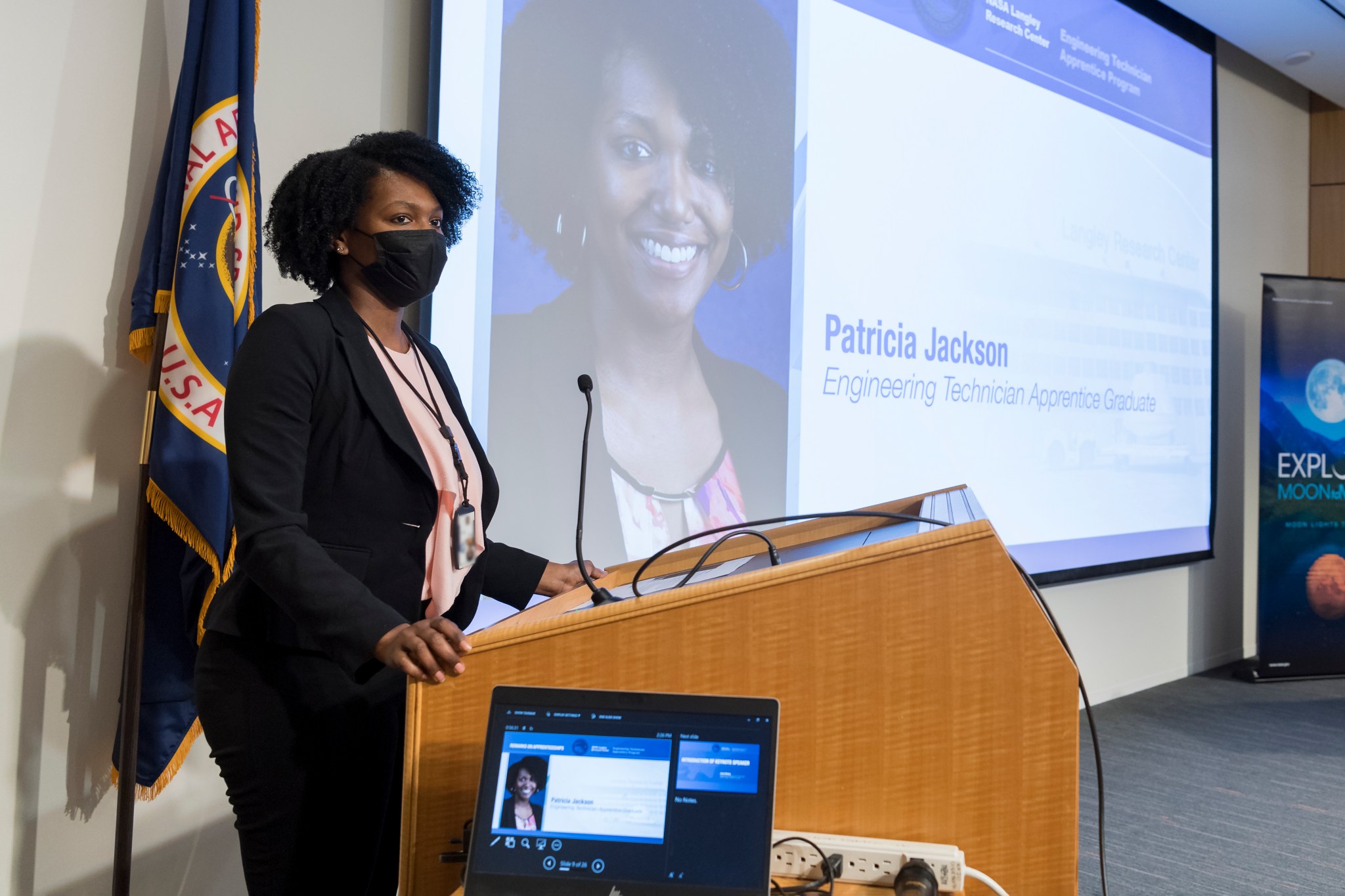NASA’s Langley Research Center’s Engineering Technician Apprentice Program honored its latest graduates in an in-person ceremony Nov. 30.
Electronics technicians Jonathan Harris and Michael Ragin and engineering technicians Michael Goodwin, Patricia Jackson and Glenn Sweatt graduated from the apprentice program.
The program’s goal is to develop a multi-skilled engineering technician workforce to support Langley’s current commitments and future needs through hands-on laboratory work, equipment operations, classroom training, skillset verification and on-the-job training with a mentor.
Even though the program is small, the contributions made by apprentices as they become technicians is huge, said Nancy Holloway, assistant branch head at Langley’s Manufacturing Applications Branch Engineering Directorate.
“They are a key group who contributes to the success of Langley delivering on testing and the manufacture of articles for projects to deliver on NASA missions,” she said.
The ceremony had opening remarks by Langley Center Director Clayton Turner, followed by remarks from Regional Director at the Department of Labor Office of Apprenticeships Jim Foti.
“It is all about the people,” Turner said. “That is what makes NASA special and that is what makes Langley special.”
Turner added that the graduates are joining a group of people that make the agency and center’s missions real.
“As those five join our fraternity they are literally going to change the world,” he said.
The class speaker was Apprentice Program graduate Patricia Jackson, who began her career at Langley as a Pathways Program intern in the fall of 2016.
“This accomplishment means a lot to me and I’m pretty sure it does for the rest of the apprentices as well,” she said.
During her apprenticeship, Jackson worked in the Langley Aerothermodynamics Lab developing the skillsets required to integrate test articles into the 31-Inch Mach 10 and 20-Inch Mach 6 Tunnels. This included the design and fabrication of test stands and interface cables for these test articles. She said she was terrified at first but got her bearings in the program and what the expectations were for her.
“My time spent, and experience gained since being in the apprentice program, has given me the gift of optimism,” she said. “I no longer harbor on what I don’t know, but instead push myself to put more effort into learning something new.”
In the end, the greatest takeaway from the program was to ask questions as they can create opportunities to learn.
“Working around engineers and people with so many titles have inspired me,” she said. “I’ve learned that just because you fail, it doesn’t mean you really failed at the project. That’s just another opportunity to learn and really explore something out of your comfort zone.”
The keynote speaker was former Apprentice Program graduate and current Langley Engineering Directorate Deputy Director Steve Gayle, who gave plenty of words of advice and encouragement to the graduates.
“Congratulations to the class of 2021,” Gayle said. “I cannot wait to see what you do.”
The NASA Langley Engineering Technician Apprentice Program was established in 1941 to address critical technician workforce training needs. The program was terminated due to funding cuts in 1999 but was reinstated in 2007.
Eric Gillard
NASA Langley Research Center




























